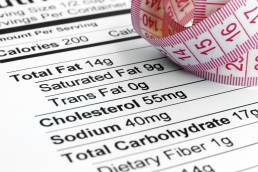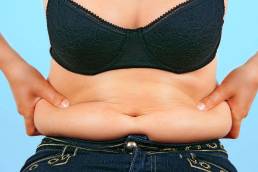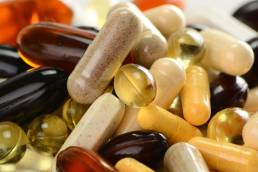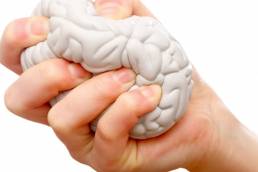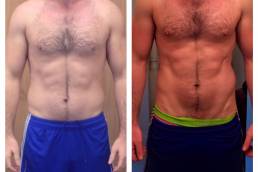20th June 2016
Take Control
Today I was asked by a client interested in accelerating the process of reducing body fat and what I would recommend. Shall I cut out carbs? Should I skip breakfast? The answer is simple, no. Why?
Ultimately its come down to one thing, well actually lots of things but for the purpose of this blog lets just say its one thing. Energy balance. When starting out in this industry I got massively caught up in the paleo (which has its place) then carb cutting which made me feel lousy then I would crash and go crazy on carbs having completely neglected them for as long as humanly possible. Fat-loss doesn’t have to be difficult, I take a flexible approach, I don’t restrict a macronutrient, feel bad if I finish a pot of hummus. I train hard during the week and I take a relaxed approach to tracking calories. MyFitnessPal which I wish more people would use is a great tool for this as well as providing information on what the food I am eating contains.
Energy Balance for those who don’t know it energy in (calories) and energy out (calories we burn daily). If we consume too many calories we put on weight, essentially stored ad body fat, if we are in a calorie deficit we lose weight. Its not carbohydrates or fat causing us to gain weight, its simply eating too much of anything.
One variable I always look to change first is output. Moving more throughout the week, whether its increasing cardio, walking from underground stations, increasing weekly gym sessions or swimming at the weekends.
22nd January 2016
Effective Fat Loss
There is nothing more confusing or controversial than the hot topic of nutrition. Read this, do that, lose weight. Fad dieting which often works in the short term rarely works in the long term with yoyo results demotivating thousands when nutrition can be made easy and simple. The single best advice surrounding diet is that the best diet is the most consistent diet. It doesn’t have to be complicated, calorie counting bewilderment. It needs to nutritional good, by that I mean anything that once lived or grew usually cuts it.
If you find yourself deep in the aisles of a supermarket you’re probably in the wrong place. Supermarkets generally keep the fresher produce on the outside aisles. The further in you get the more refined, processed and tinned food will get.
My Top 5 commandments for and effective nutrition plan;
- Protein, Protein, Protein – Aim to have a portion of protein with each meal. Protein provides the building blocks to essential muscle recovery and building through the breakdown of amino acids, you will also find yourself less hungry.
- Green is Great – Vegetables should be the foundation to each meal. Get creative with different varieties and colours the more the merrier. You’ll burn more calories consuming this stuff as well.
- Avoid Alcohol – I don’t need to explain why
- Consistency – Start as you mean to go on, plan ahead, shop ahead and be prepared.
- Quality – If possible eat lean, free range, high quality grass fed meats. The animals are leaner themselves and the meat much better quality. Farmed Salmon for example contain up to eight times the level of carcinogens as their wild counterparts.
If you have any questions on nutrition, training or programmes please do not hesitate to contact me at [email protected].
15th January 2016
My Top 3 – Magnesium, Vitamin D, Omega – 3
I wanted to cover the subject of supplementation because often too much emphasis can be put on supplements to either aid or enhance training or completely the opposite it can be overlooked and neglected.
Regardless there are other factors that must be achieved when looking at supplementation being nutrition and training. However, I do believe that if you have the first two achieved the supplements can help - but they must not replace a well balanced diet or meats and greens.
'No supplement can provide a shortcut to the success of your goals'
My Top 3 I am keen to cover today are;
- Magnesium
- Vitamin D3
- Omega 3
First up Magnesium, a supplement the general population is commonly deficient in. It is involved in 300 essential biochemical reactions in the body ranging from energy production in your cells to protein synthesis. Key for energy, reducing fatigue and muscle building. Magnesium is best taken before bed to help relax the body, aid sleep and reduce stress.
Vitamin D3, again another supplement / vitamin most are deficient in. Vitamin D is VITAL, yet most of us will be shocked to hear you’re deficient in this. Studies
Show D3 may decrease risk for many diseases and conditions including certain types of cancer, multiple sclerosis, hypertension, weight loss and even longevity.
Last up, Omega – 3 a type of essential fatty acid. Commonly found is meats and oily cold watered fish it is essential for good health. Research has shown that it can help prevent a host of serious long term ailments including cancer and heart disease. For fat loss its great as it promotes the utilization of existing fat stores for fuel.
Supplements are there to supplement a well balanced diet. Optimal health not only leads to a better functioning body, but can also lead to bigger more motivated gym performance.
20th August 2015
Nutrition for the City Worker
For most, Fat Loss is the most common goal in the Health & Fitness industry. It’s not surprising given the poor information the general public are subjected too, from the print press we read to the online health and fitness apps which also contain poor information. For example, I read this week that a new juice diet can help shed weight in just a matter of weeks, and astonishingly coffee drinkers are less likely to become obese with the average number of cups of coffee being 5 per day.
Today we are going to take a closer look at the nutritional components that aid fat loss and most specifically, how to set up an optimal nutritional day for the busy individual living and working in London. Nutrition, will always be the number one contributing factor to whether or not you achieve your body composition goals.
Before looking at what a typical day’s nutrition should look like it’s important to understand the three macro-nutrients involved in establishing your nutrition plan and why they’re so important.
Protein! Proteins are the building blocks to multiple functions in your body like protein synthesis, detoxification and hormone building. It’s important to understand that without quality proteins, our body’s cannot complete these functions to full capacity. Lastly, without quality proteins, long lasting changes in fat loss are pointless.
Fats! Yes, Fats are our friend. Healthy fats are involved in hormone building and energy output. A diet low in healthy natural sources of fat will halt any fat loss program you are currently trying. Fat is key, and this is one macronutrient I see many people completely ignoring whether it be education of fats or even knowing what a healthy fat might be.
Carbohydrates! I said the C word. Carbohydrates are involved in energy output and act as a direct fuel for the brain. Carbohydrates are a non-essential nutrient because our body’s can produce carbohydrates from proteins through a process called ‘Gluconeogenesis’. Natural sources of carbs are great, Sweet Potato and Vegetables are considerably better than a pizza or sandwich. It’s having the willpower to make the correct decision.
Now we know what macronutrients should be on our plate it’s important to understand meal frequency. Eating too few meals won’t get you to where you need to be, eating too many will make it impossible to maintain over a long period of time. Sustainability is key. It depends on the individual, but for most people 4 complete meals a day or 3 meals per day with a snack in between would be a good starting block.
Now how to make all the above fit into your busy lifestyle. Each meal will consist of the following;
Animal Protein
Healthy Fat
Non Starchy Complex Carb (Vegetables, Leafy Greens being the best options)
Breakfast
Poached Egg, Salmon & Avocado
Lunch
Grilled Chicken Breast
Spinach
Handful of Cashew Nuts
Dinner
Fillet Steak
Boiled Kale
Tablespoon Olive Oil & Balsamic as dressing
The key to success is consistency. Without consistency you most certainly will not achieve your goals. Finding a manageable process of setting up your daily nutrition will increase the likelihood of success. Starting with four meals would be a good place to start, it will stabilise your blood sugar and help sustain energy throughout the day and give you more energy.
15th June 2015
Stress: The Secret Killer
Stress can be as debilitating as most diseases. Yet the frenetic fast paced city life of London causes millions to suffer in silence, most people live with chronic stress not knowing how to best manage it nor aware of the negative impact it can have on daily life.
It can make you feel lethargic, tired, and it can rapidly increase the ageing process. More relevant for this blog is the impact is can have on body composition, training and impeding you from reaching your athletic potential.
Why like many of our problems does stress go ignored? Do we secretly admire highly stressed people who manage multiple tasks at once?
Success is something we all strive for, and stress appears to be something we all accept as a part of success. By understanding stress we can hopefully create strategies to overcome it, consequently this will ensure we manage future stressors effectively also.
Let's looks at the two most common types of stress;
Acute Stress: This is the most common form of stress. It can come from demands and pressure of the recent past and anticipated demands and pressure of the near futures. Acute stress is thrilling and exciting in small doses, too much can be exhausting. Examples could be giving a speech in front of hundreds of people, or not concentrating at the wheel of your car and almost crashing.
Chronic Stress: This is the secret killer. This is the response to emotional pressure suffered for a prolonged period time in which an individual perceives he or she has no control.
How The Body Responds To Stress: When you perceive a threat, your nervous system kicks into action by releasing a flood of stress hormones, including adrenaline and cortisol. Its these hormones that allow us to react in almost a superhuman way. Your heart rate will increase, muscles tighten up, blood pressure will rise and your body's sensors will become more responsive.
Stress Management
Strength Training: is a very effective way to counter the demands stress can put on the body. It can improve energy use, build muscle and make you feel good. It also elevates the body’s natural anti-stress system.
Omega- 3 Fats: Fish oils are proven to decrease inflammation in the body and studies suggest is can help fight against chronic stress. Omega- 3 supplementation has also been found to decrease the acute stress response from intense strength training, leading to less inflammation post workout and faster recovery.
Eat Antioxidant Rich Foods: Berries and leafy green vegetables will increase your glutathione to minimise the effects of chronic stress. Antioxidant rich foods include cruciferous vegetables, like broccoli and cauliflower, dark green veg such a kale and collards, and berries such as strawberries, blueberries and raspberries.
15th April 2015
8 Week Body Composition Programme
I had frustratingly gained considerable weight having sustained a dislocated shoulder playing rugby which had a huge impact on my training. As a result my nutrition also suffered. As soon as I felt the joint could get back into resistance training I assessed my current diet/nutrition.
I had been consuming far too many foods that had either been processed, or came from a sugar/carbohydrate source. My first action was to remove this completely from by diet.
‘A diet high in carbohydrate will result in the body reserving fat as a fuel’
Having assessed what had led to my body fat increasing, I reverted back to a high protein/fat diet. I had always maintained a high level of fitness and was shocked to see how poor my physique had become having not trained for 6-8 weeks. What was more disappointing was that my nutrition had been massively affected. I sometimes felt lethargic die to what I was eating, and waking up in the morning had almost become a chore again.
If fat is not apart of the diet, then the body will store any fat it can which is predominantly done through carbohydrates which leads to weight gain.
Shocking my body by removing all sugar/carb sources it had become accustomed too, promoted my body into having no choice but to tap into my fat stores. Our bodies will use any carbohydrates/sugar we consume as an immediate source of fuel as well as being stored as fat. This could therefore no longer continue.
A low carbohydrate diet will force the body to use its fat sources as a fuel
For any body composition/fat loss programme its essential to manage insulin. A diet high in protein/fat allows for a slow and steady rise in blood sugars. Providing a slower release of energy rather than a spike and then drop carbohydrates would do. This had a most noticeable impact on my in the mornings, after 2 weeks I was again able to wake up at 6am and not feel tired.
I was consuming healthy fats (avocado, nuts, olive oil) with every meal, a portion of protein (chicken, beef) and always a dark green vegetable. Dark green veg (spinach,kale) are dense in mineral, vitamins and nutrients. Nuts are also a great source of healthy smart fats that also allow blood sugar to remain stable for an extended period of time. I would consume around 60 grams per day and vary the nuts I was eating.
Including a green vegetable is important as they are nutrient dense, low in sugar and high in antioxidants which assists with digestion and gut health
After 4 weeks I could see a noticeable difference not only aesthetically but in myself, I felt great, had more energy and was training harder than ever. By the end of the 8 week programme I had reduced 4% in body fat and my weight had dropped 1.1kg. I am now aiming to get down to 12.% in the next 4/6 weeks.
Week 1
91.3kg
18% Body Fat
Week 8
90.2kg
14% Body Fat
